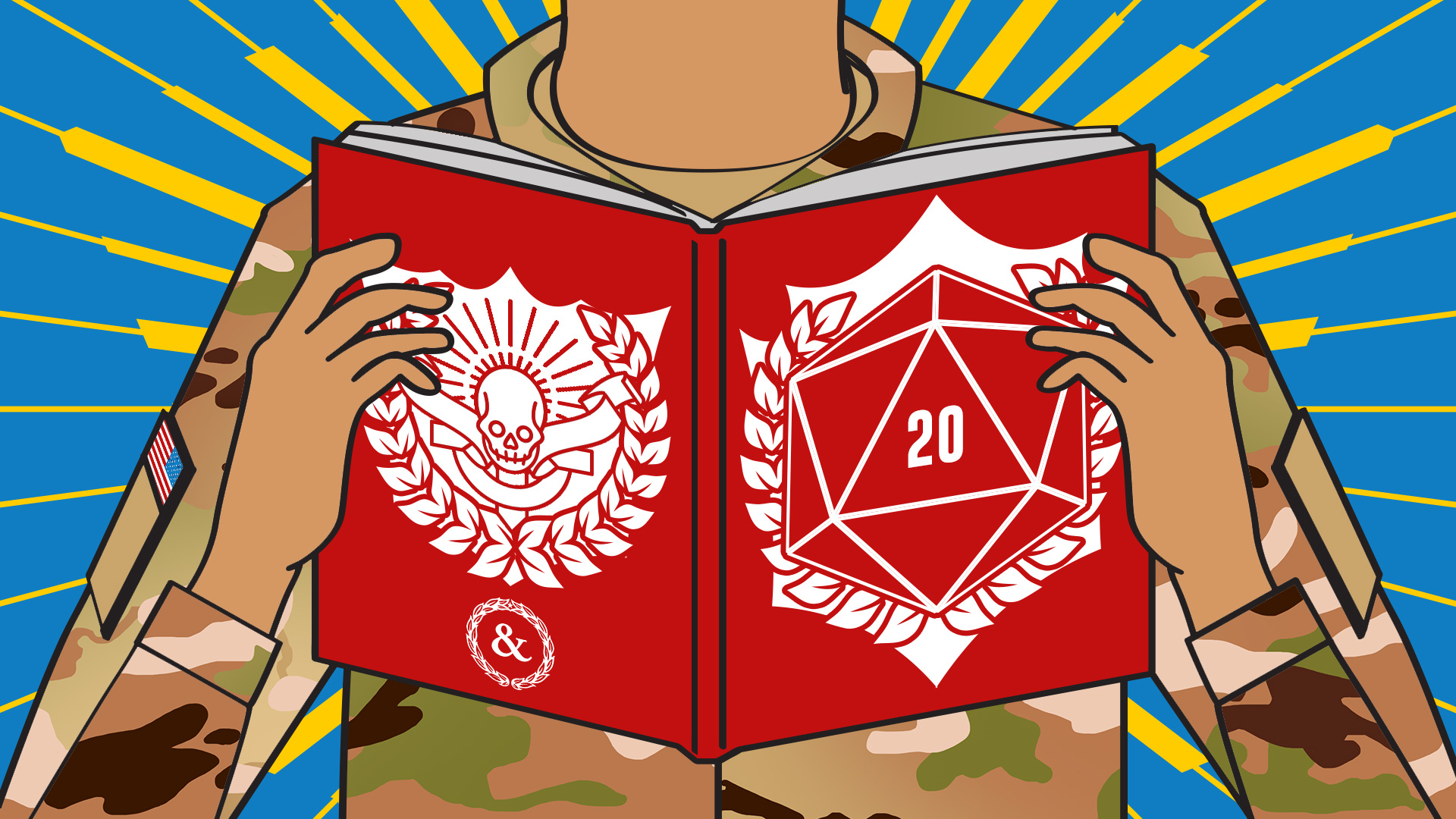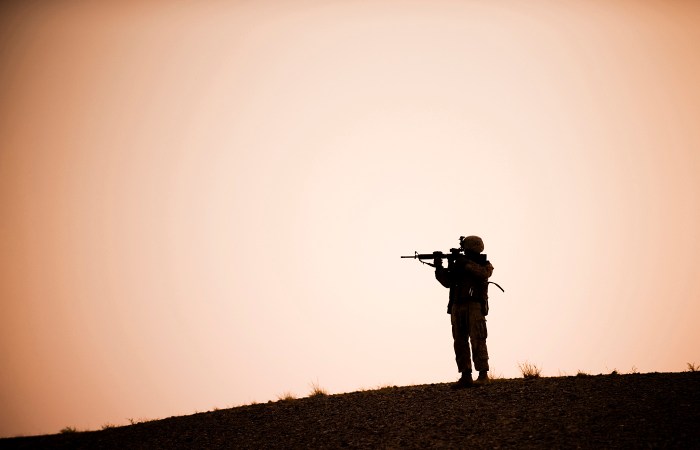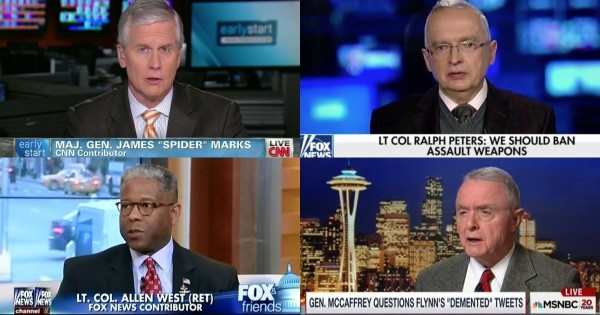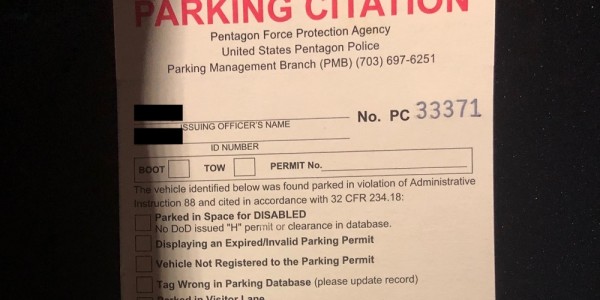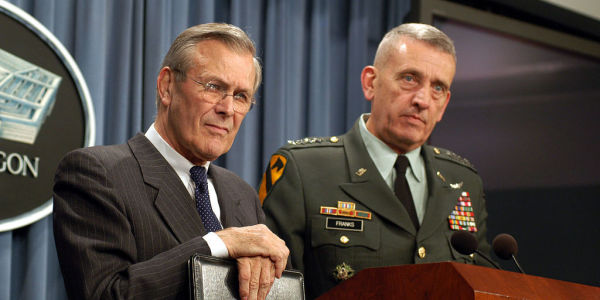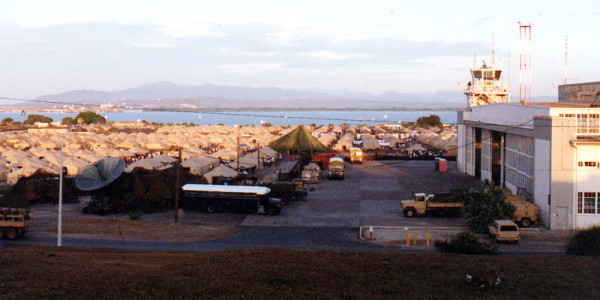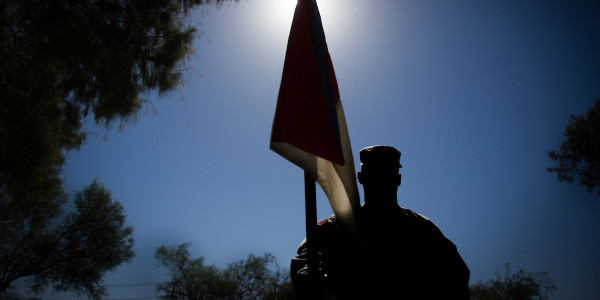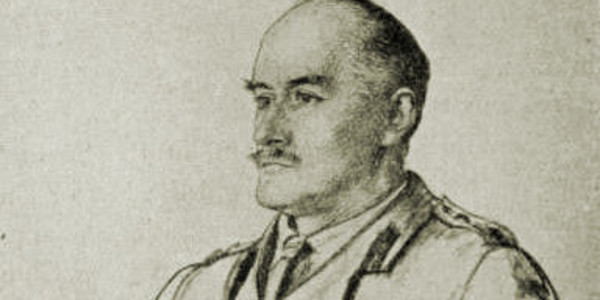I’d found myself in a long-distance relationship after I moved to Germany, and things were going poorly, to say the least. After he complained that I didn’t make enough time for him when I called after a 14-hour workday on TDY in Belgium, I decided to start investing in my future happiness and promptly dumped him. The first thing I did once I returned to Germany was to buy the Playstation 4 I’d been wanting for years, and the newest God of War that had gotten near-perfect reviews. I played until 3 in the morning and it felt like the definition of freedom. Unfortunately, the next morning I realized I still had a boyfriend-sized hole in my life since I was in a foreign country and had not yet made any new friends. After all, I had spent all my free time on the phone. So, I did what any self-respecting nerd would do and threw myself headlong into Dungeons and Dragons again.
When I returned to the United States last fall, I left behind the closest group of friends I’ve ever had back in Germany. One of them, an avid D&D player who I also reintroduced to Magic the Gathering — a D&D-adjacent card game with similar appeal — brought me doughnuts and coffee at the Ramstein Passenger Terminal right before my flight. When I finally received my shipment of household goods, one of the first things I dug around for was a 3D printed crab that another D&D friend painted for me a few months earlier, as a reference to the name “BattleCrab” that I use on most of my gaming accounts. Someone else I met through my original D&D group proofread this article (she’s an English teacher and I work in a technical field, so I thought I’d call in an expert). And most importantly, I met my current partner through the same group. He’s recently been working on getting me into Halo Infinite in between rounds of Magic and watching eSports tournaments in our new living room. I guess what I’m saying is “nerd hobbies” have essentially dictated everything from how I spend my free time to when I sleep since I’m up bright and early most Sundays to try to squeeze in some game-time with my friends still in Germany.

I’ve heard countless other timezone-spanning, found-family stories from others in the military community. One of my partner’s coworkers specifically requested a Halo LAN party instead of a traditional dinner before leaving for his next duty station. A wonderful ambassador for the local DoD Magic community planned an incredible tournament as he was dealing with the stress of packing to return to the United States. He asked us to sign one of his favorite playmats instead of a greeting card. People who had never touched a controller flooded into Discord and Skype calls to play Jackbox Party Pack games after it became clear the COVID pandemic was going to isolate people for months instead of days. Now more than ever, members of the military community are relying on video game sessions, board game nights, and roleplaying games to meet new people and stay connected.
Unfortunately, my experience with these hobbies has demonstrated that military leadership is still unsure of how to best support non-traditional interests in their younger populations. Throughout six years at three different commands, I’ve had exactly one senior leader engage me in a conversation about my interests, instead of simply letting their eyes glaze over when I mention that I’d played in a Magic tournament that weekend. I’ve never seen a single email advertising an upcoming eSports tournament or comic convention, but I’ve received countless emails about traveling in Europe with MWR, attending local baseball and hockey games for “teambuilding,” and shopping at holiday bazaars. With that said, Spiele — the largest board game convention in the world — is held every year in Essen, Germany, and interested military members are left to pay absurd hotel costs and plan every aspect of a trip that could easily be added to the local MWR roster. The only issue I could foresee would be the logistical nightmare of fitting all the brand new board games onto an already full bus.
One particular challenge inspired this article. When I made my deep dive into the local tabletop gaming community, I eventually became the leader of my introductory group, as other members moved to different bases. They’d warned me the biggest challenge in maintaining our once-weekly game night would be finding a location on the post where we could play regularly. At the time, we were playing in a sparsely populated on-post bar operated on a weeknight by morale, welfare, and recreation, so I didn’t think too much about it. Then, one night before we started our session, one of the managers pulled me aside along with the leaders of the two other gaming groups. They told us that we either had to convince our 20+ combined members to pay a significant cover fee each night we played, buy more alcohol, or tell the bar what food we’d pay for since we were unwilling to commit to needing a designated driver every Wednesday night.

Afraid that we would lose members, we opted for the food option. The next week, instead of working with us, the manager told us that we had two weeks to find a new place because they decided that they would prefer to avoid the hassle. We missed a couple of weeks until we were able to convince the manager at a different on-post bar to let us use a table in their main seating area. Unfortunately, the music was so loud we had to yell to hear each other. We did, however, have a great view of the digital slot machines where the same people inserted bill after bill, looking perpetually defeated with a drink in hand, week after week.
Predictably, once this bar’s manager also realized we weren’t buying two or three drinks per person, they gave us the same ultimatum. This time, even though their associated restaurant was closed for several months, we were also forbidden from bringing in outside food. Now, we had to cut our nights short to make sure people had time to eat something before they arrived. No other on-base options were open late enough, since we always played after our day shifts. I was desperate enough to start looking at local options instead, but most of my emails were ignored and the few possibilities were prohibitively expensive or weren’t willing to help us since I didn’t speak German.
I couldn’t help but fixate on what felt like hypocrisy on the military’s part. How much annual training on alcohol abuse, identifying members of our unit that feel disconnected and isolated, and avoiding off-limits establishments had I sat through? How often were we encouraged to look left and right and forge our own communities, or to look out for our battle buddies? And yet our little community of like-minded people, almost all active-duty military members, all choosing a healthier option rather than cracking open a six-pack at home, alone or electing to be responsible and not drink and drive, were told we couldn’t stay unless we paid for the seats our asses occupied for a few hours. Hypocritically, at the exact same time, they were adding a new nerd shop with trading card packs, board games, and comics to the local BX. It certainly felt like it was acceptable to make money off our hobbies, even if we weren’t supported in our pursuit of them.
Fortunately, as I’ve become more entrenched in the military gaming community, I’ve realized that some remarkable trailblazers have already laid the groundwork for wider acceptance and support. This recent article from Forbes provides an excellent timeline of the adoption of eSports among various branches. The Army began attempting to use eSports as a recruiting tool as early as 2018, though many other branches seem to view it as less of a publicity tool and more as a resource that contributes to the overall quality of life of service members. Additionally, groups like Military Esports operate completely outside of official military channels and instead are made up solely of volunteers.
Cujo Kate, a commentator, and spokesperson for Military Esports and the associated Military FGC was kind enough to answer some of my questions about the difference between these approaches.
“Military Esports…is privately and anonymously owned. It is not associated with any type of recruiting or specific branch of the US Military. Military Esports and Military FGC [include members of the] United States Military and Veterans only. It is our job to…create an environment that is fun, exciting, competitive, private…morale building. All of the online competitions are free, [though some members only join to] make friends in the discords and talk/play for fun.“
As wonderful as these grassroots gaming groups are for bringing passionate, like-minded nerds together when they’re off duty, they cannot change decades of entrenched military culture on their own. Interested service members must take advantage of existing opportunities and strive to create their own. For those of us that are a little more introverted this may be uncomfortable but, to coin a phrase, senior leaders don’t know what they don’t know. They may inadvertently miss a great opportunity to engage a large subset of their troops, not out of an attempt to dismiss their needs, but out of a lack of understanding. If gaming tournaments, eSports, and weekend marathon tabletop sessions don’t ever show up on their radar, we can’t expect their support. If you’re interested in something but you can’t find the right group for it, do something to change it.
Promote yourself and what you love, take risks, reach out, and find your people. Below are some links to help get you started.
- Military Gaming League
- Air Force Gaming
- U.S. Air Force Academy eSports
- United States Army eSports
- Army West Point eSports
- Navy eSports
- U.S. Naval Academy eSports
- Marine Corps Gaming
- Military eSports
+++
Caroline Moseley grew up in a small town, went to college in a small town, and then made the ill-informed decision of moving to Washington, D.C. Then she decided she was over the big city and tried Europe instead, even though she had never visited. After four years in Germany, she returned to D.C. with a broader appreciation for Belgian beer, a train system that (mostly) runs on time, and the “OCONUS family” she found along the way. Working as an Army civilian wasn’t the original plan, but somewhere in between Oktoberfests and gaming conventions, she realized it was the right one.
